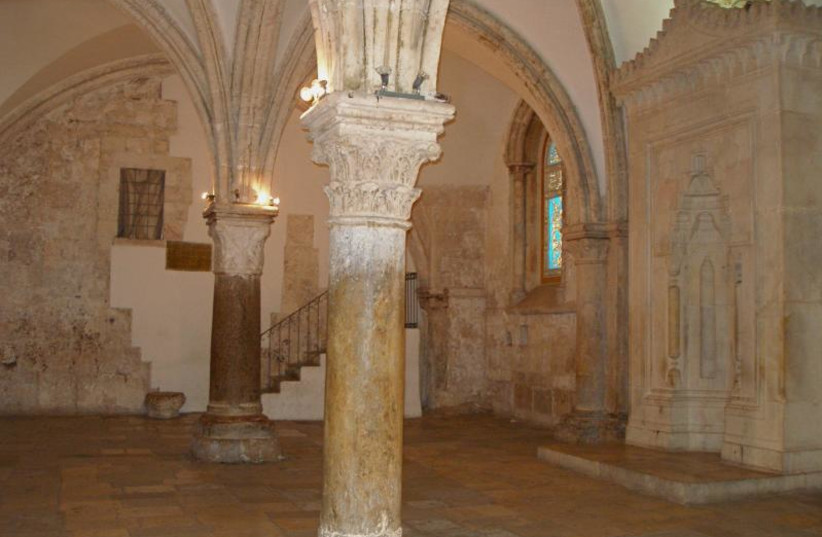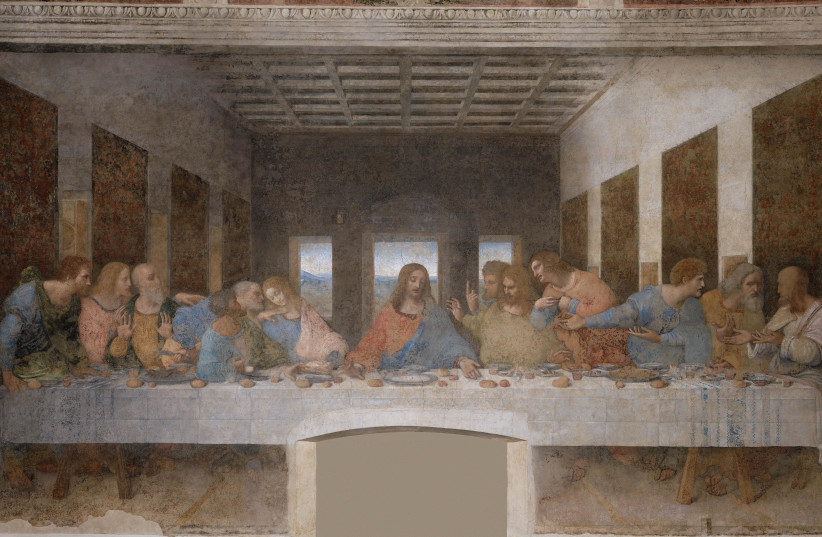A window in the Room of The Last Supper (the Cenacle) on Mount Zion in Jerusalem was damaged on Thursday by a Jewish man - apparently under the influence of alcohol -who threw a stone at an Ottoman-period window at the Christian holy site.
The police opened an investigation and arrested a resident of Jerusalem in his 30s and the Jerusalem Magistrate's Court has since ordered the release of the suspect under restrictive conditions.
Jewish-Christian tensions amid vandalism uptick
Against the background of the increase in attacks and desecration of Christian and Armenian buildings and religious people in the Old City of Jerusalem, a conference was held on Friday on the subject under the title: "Why do certain Jews spit on Gentiles", in which various researchers and lecturers from the city's universities participated. The title of the conference drew harsh criticism towards the organizers who had to change its location at the last minute.
According to Walla, the Foreign Ministry decided to boycott the conference in a very unusual decision, especially in light of the fact that the Foreign Ministry is the main party responsible for the relations with the Christian world and the connections with the various churches.
Yasaka Harani, an independent researcher who participated in the conference on Friday, referred to the vandalism in the Room of the Last Supper, saying: "I really don't care if he was drunk. The offenders are for some reason always...in an outstanding situation."

"I gave the pictures of the shattered window to a Middle East expert who was present at the conference. This is how he replied to me: In the upper part of the verse are the words of God to David - 'And judge the nations with justice and do not follow those who turn your heart away.' It's a shame that Jews who are drunk and, unfortunately, also sober and alert, but who have distorted worldviews, do not allow their minds to follow the right path to which the verse points."
Gadi Dahan, a tour guide in Jerusalem, said in response to the shattering of the window: "About 10 years ago they destroyed the ceramics that decorated and enriched King David's tomb. Unfortunately for us, we are torn between one extreme and the other."
Series of incidents reported at Christian sites across Israel
In recent weeks, Breslov Hassidim have started visiting the church in the Carmelite Stella Maris Monastery in Haifa, which they believe is the burial place of the prophet Elisha, one of the disciples of the prophet Elijah.
"I really don't care if he was drunk. The offenders are for some reason always...in an outstanding situation."
Yasaka Harani
The hassidim hold prayers at the entrance of the church, and about a week ago, two of them were seen praying inside its inner sanctum. Last Friday, a Christian Arab resident of the city was arrested on suspicion of attacking two hassidim who frequented the church and was released under pressure from senior members of the Catholic Church.
Following the events in Haifa and the growing anger among the city's Arab population, on Sunday the commander of the Haifa police held a meeting with the mayor and the monks and nuns, in which he announced the intensification of police security around the monastery. Furthermore, a demonstration of solidarity with the monks was planned for Sunday night. The Hassid who tried to break into the church and was attacked last week, intended to file a complaint with the police.
In recent months, there has been an increase in attacks and harassment by haredi Jews and extreme right-wing activists against priests, nuns and Christian pilgrims in Israel, especially in Jerusalem.

One of the phenomena that has been increasing in recent months is Jews spitting on Christian clergymen and vandalism against buildings or symbols that represent Christianity such as monasteries, churches and crosses. Some of these harassments were documented and the footage appeared on social media and also in articles on Israeli television channels.
In April, a 32-year-old resident of Jerusalem was arrested on suspicion of robbing a monastery in the city's Ein Kerem neighborhood. According to the suspicion, two masked suspects entered the monastery, bound one of the nuns there with masking tape, sealed her mouth, and stole a large amount of foreign currency from the place. Another nun who was there ran to her room, barricaded herself there, and called the police.
Also in January, there were several similar cases of hate against Christian sites. The Maronite Christian center in Ma'alot-Tarshiha in northern Israel was vandalized and destroyed by unknown persons. A week earlier, graves in the Christian cemetery on Mount Zion were vandalized and hateful inscriptions were sprayed on the walls of the Armenian monastery in the Old City of Jerusalem.
